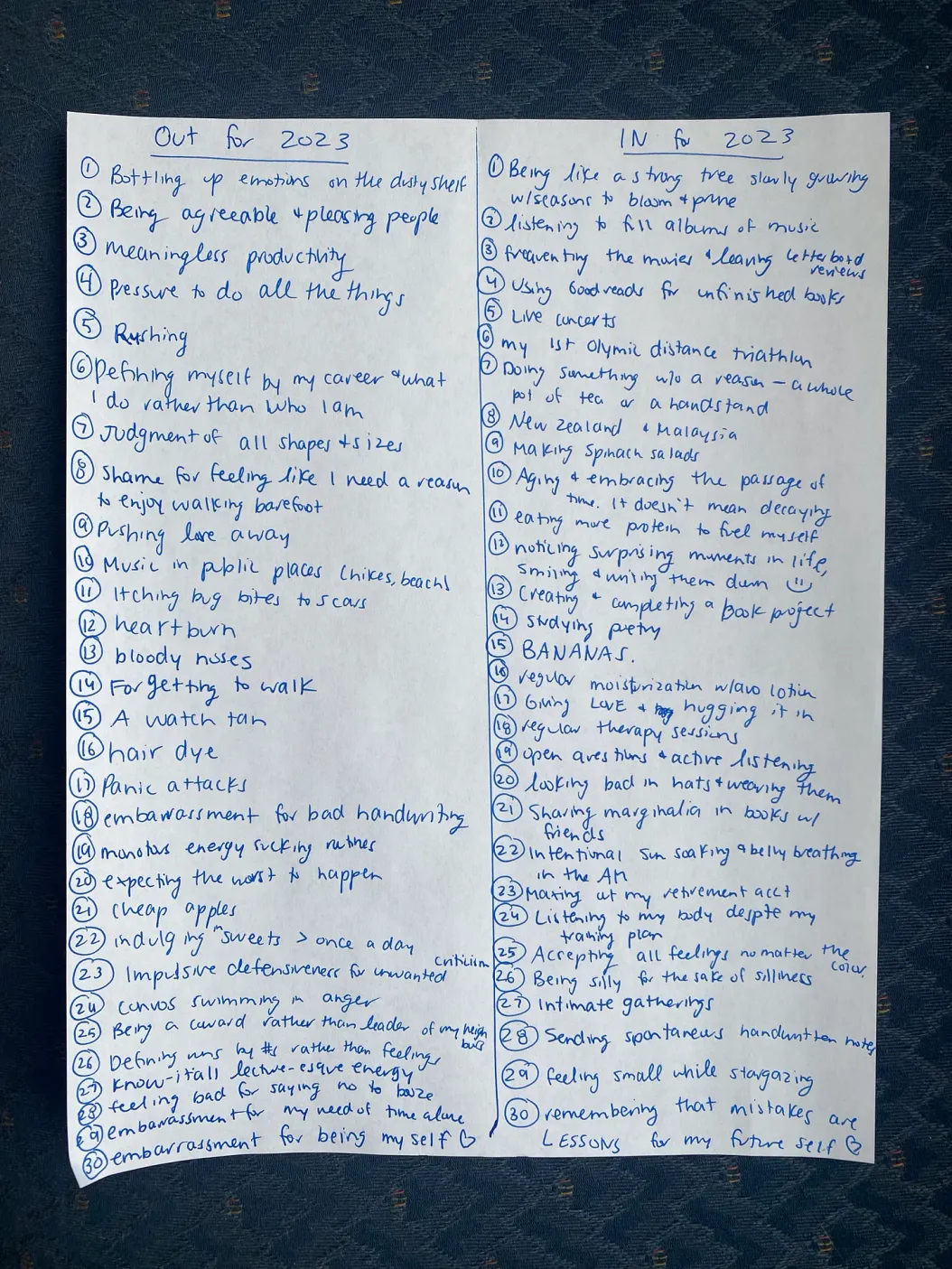Aloha fellow learn-it-all!
Greetings from Waikiki, Hawai'i 🌺
So my flight was supposed to be going home next week but that has officially been postponed. Seven weeks is not long enough to be here. I don't know when the next time I will be here is and life is too good to be true.
Double rainbow views are a great way to start off the week.
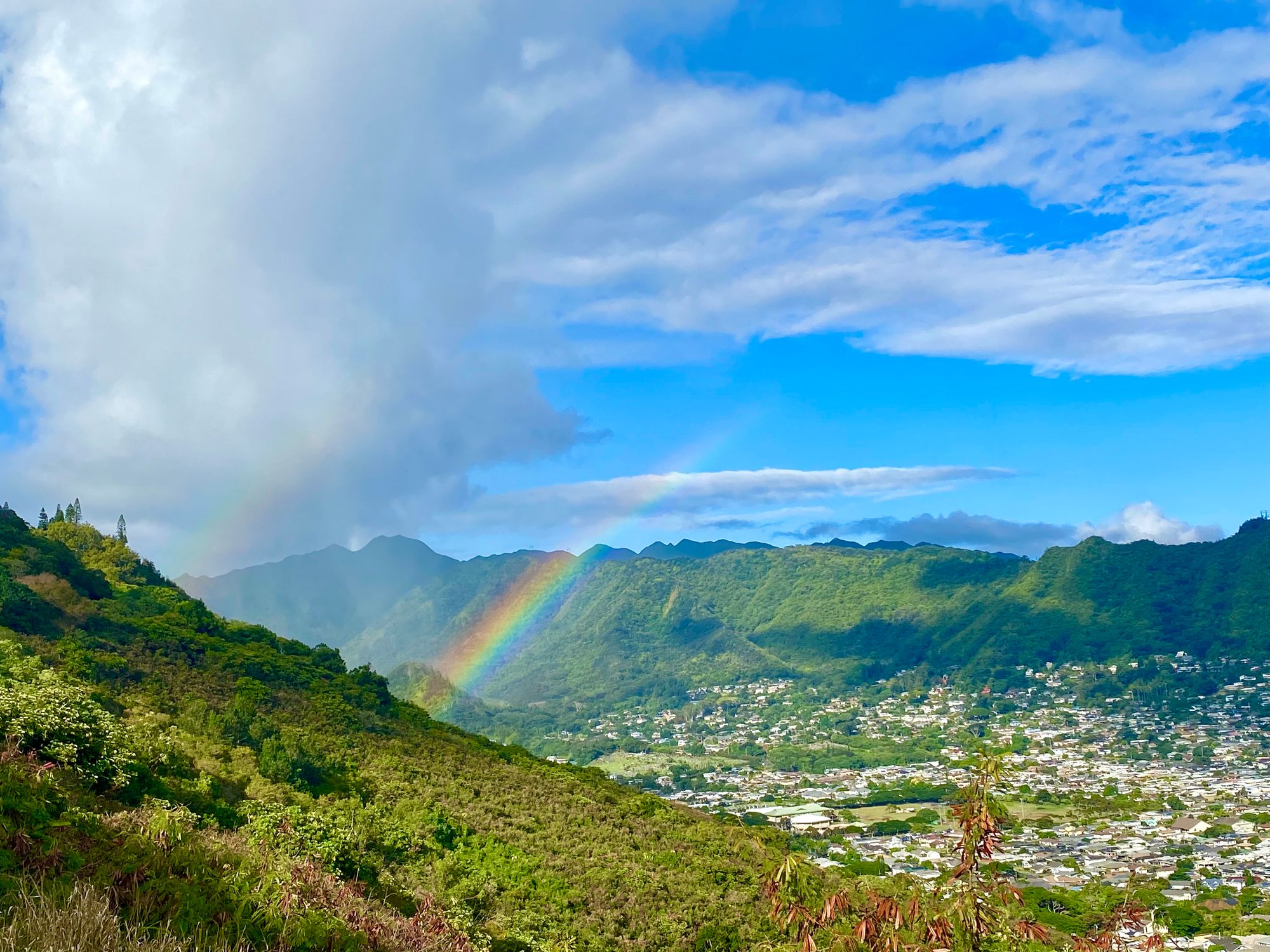
If you are new here or missed last week's edition, you can catch up on the past letters here. If you are reading this for the first time, I’d love you to sign up below to join the other learn-it-alls:
Now, let’s dive into letter 73 from a learn-it-all. Enjoy!
🖊 Writing (from the archives)
I wrote this piece about Cultivating Curiosity a while back in March 2020 at the start of the pandemic. It’s been a great reminder to myself about where I want to get more curious in my life.
In the piece, I do a deep dive into what the different types of curiosity there are Interest vs. Deprivation that I first got introduced to by psychiatrist and neuroscientist Dr. Jud Brewer in a workshop. This has been timely for me to surface as I’ve been cultivating and exploring more of my interest curiosity lately.
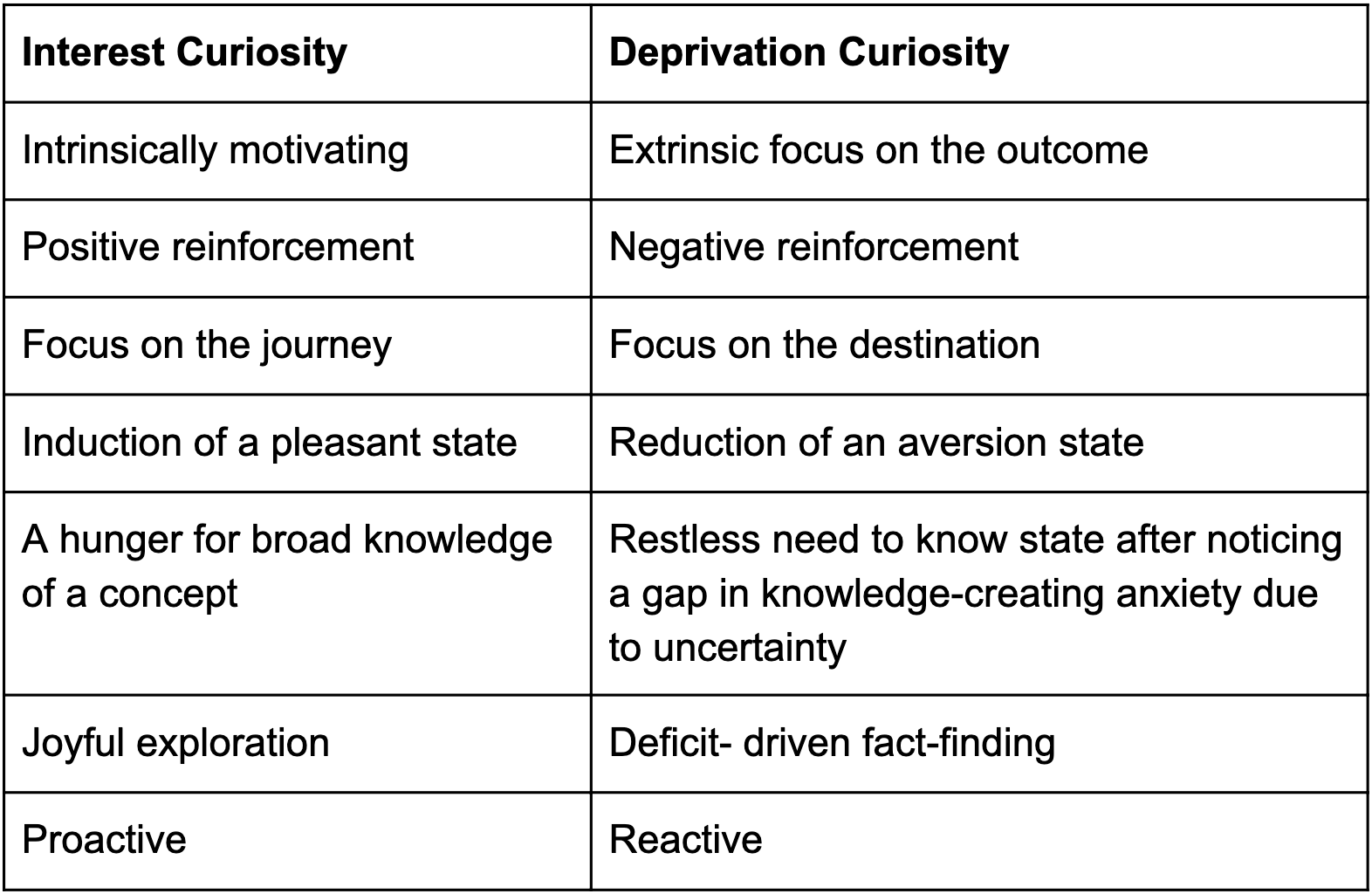
Six quick tips of where to start are:
- Ask more questions. Ego gets in the way of this from fearing embarrassment of not fully understanding a concept. Avoid the know-it-all syndrome and choose to be a learn-it-all instead. Don’t make assumptions that you are both clear on something.
- Have conversations. Become a better listener. Seek out mentorship knowing that the relationship can be just as rewarding for the mentor as it is for you.
- Read the unfamiliar book that is outside the realm of what you usually read. Test the boundaries of what you typically prefer. If you like non-fiction, give fiction a shot.
- Spend time with a child. They have so much wonder about life and their curiosity leads to creativity.
- Drive self-development. Learn more about yourself because the only constant variable in life is changing so become a student of your habits and behaviors.
- Start writing. It can be used as a tool to educate others and help identify holes in your understanding of the new topic that you are exploring.
🎬 Watching
I got interviewed by Jenna Spinelle who teaches classes on journalism, independent content creation, and the gig economy a Penn State’s Donald P. Bellisario College of Communications.
She was compiling a reading list around cultivating curiosity and found my blog mentioned above. It started with a DM on Twitter and I was honored by the idea of being able to inspire other college students on their paths.
This is the perk of evergreen content and a great reminder to me that I need to start writing more timeless pieces on my website (as much as I love these ephemeral letters).
We spoke about having an experimental mindset, where to begin and the long game of content creation. If you'd like to watch the 25 minute video, here it is:
📖 Reading
I read about Time dilation by the author Seth Godin. He sums it up to explain how his piece took one hour to write and six minute to read:
The time dilation of polish and curation is possible because of asynchronicity and the one-to-many nature of publishing ideas. Asynchronous because you’re not doing it live, reading it as I write it. And one-to-many because the work of a creator is multiplied across many readers.
The polishing allows for value to be added and to see what gets elevated and what gets lost in distribution. A piece can be polished to near perfection but without being curated by other readers, it will never be seen.
A flaw in human desire is our preference for hotter medium. This means I feel like I know someone better from meeting in person versus a phone call versus a letter versus a Snapchat. They each take different amounts of time and effort.
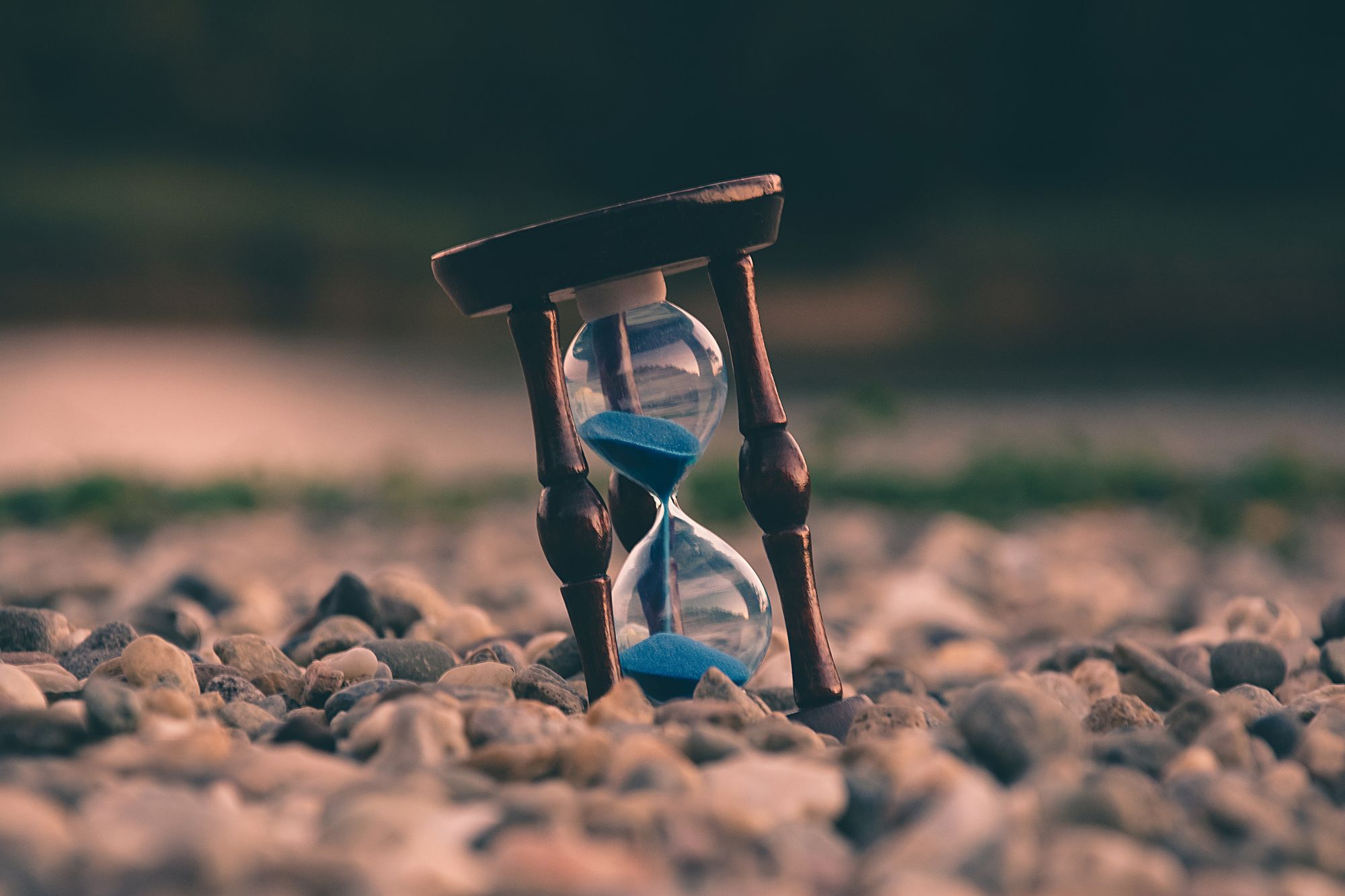
With this time dilation we can listen to a 7 minute voicemail and inefficiently get the message that could be said in one minutes. There is a higher margin for fluff.
That is why it is so easy to have pointless meeting. This is also why Amazon has written memos and a culture of writing vs. PowerPoint slide presentations for meetings. There is time efficiency.
This makes logical sense taht we should all do this but there is excitement seeing something live and we feel the delight of a surprise and interpret the message differently even though it costs more time. I don’t want to rid the excitement of real time interaction for saving time. That is what makes us human. We don't always do what some might say is ‘smartest’.
In some cases I love to pay for compression as Blaise Pasval wrote: "If I had more time, I would have written a shorter letter". In other times, I like to think about using my time frivolously.
🏖 Hawaii Update
I had a fairly long catchup call with my family a few days ago. My sister told me to stop blabbing. She was so confused about whether I lived on the island of Honolulu, Waikiki, or O'hau. Usually she's the one teaching me geography but this time the tables have turned. Silly goose I thought, but I know how it can be confusing. Much of this is all obvious to me but not to others so let’s break this down.
Thank you to National Geographic for kids here are some facts:
- Nickname: The Aloha State
- Statehood: 1959; 50th state
- Population: 1.43 million (as of July 2015) —> 1.46 million (as of 2021)
- Capital and biggest city: Honolulu
- Abbreviation: HI
- State bird: nene, the Hawaiian goose
- State flower: yellow hibiscus
- Its rich soil is considered one of its most important natural resources
- Sugarcane, pineapples, coffee, macadamia nuts, and flowers are all important sources of income for the state’s economy
- Tourism is the state’s leading source of income
The History
About 1,500 years ago a group of canoes came ashore to some of the islands now known as Hawaii. These people—the islands’ first known residents—had rowed about 2,000 miles from the Marquesas Islands to get here. People from what is now Tahiti—over 2,500 miles away—followed 500 years later. These cultures brought traditions of their own and over time created new traditions such as surfing, hula dancing, and exchanging flower garlands called leis.
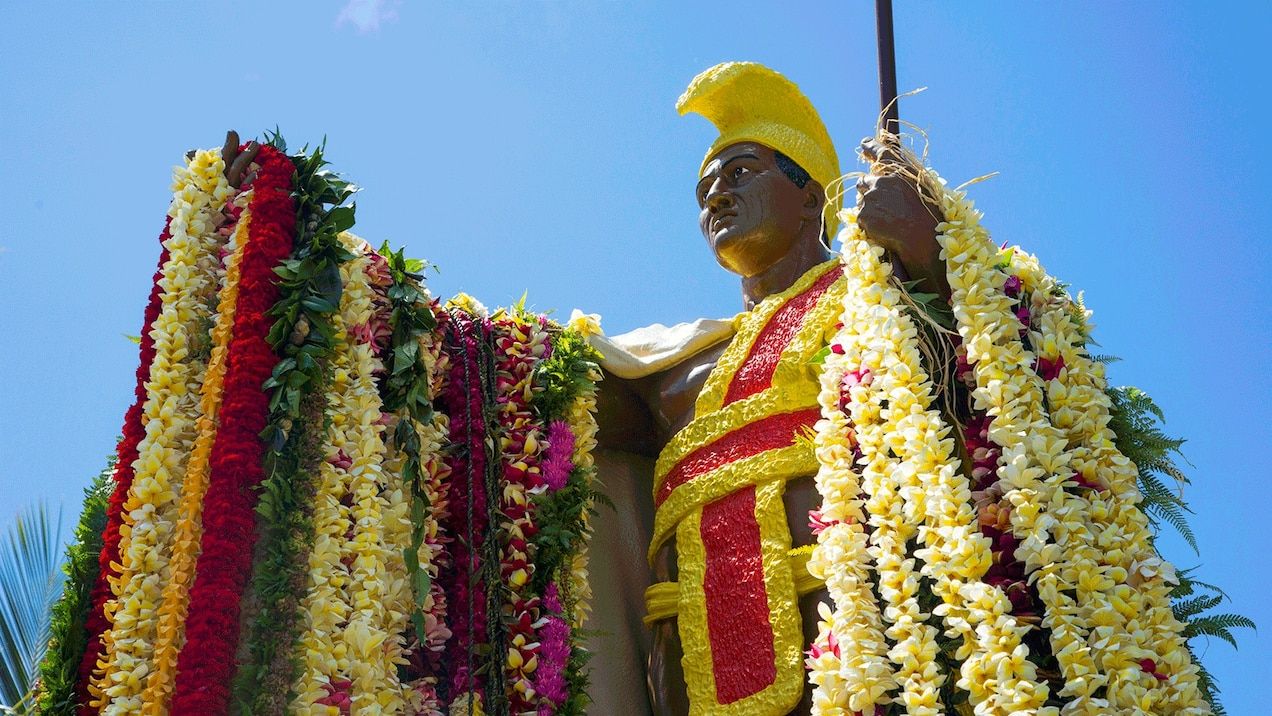
In 1810, Kamehameha became Hawaii’s first king. The islands continued to have royal rulers until 1898 Hawaii when is became a U.S. territory. It was named the 50th state in 1959. Visits to the Iolani Palace are still allowed and it is the only royal building on U.S. soil.
The Geography
Hawaii sits over 2,000 miles west of California. Hawaii is the world's largest island chain, and it's the only U.S. state completely made up of islands. But only 7 of its 132 islands are inhabited: Hawaii (also known as the Big Island), Maui, Molokai, Lanai, Oahu, Kauai, and Niihau.
Here's a quick and dirty spiel from my perspective breaking down the seven inhabited islands in the Kingdom of Hawai'i and its vibes:
- O'hau has the capital city of Honolulu and is the most dense. I think of this island as similar to Manhattan with lots to do.
- Maui is more remote but still a lot to do and great for honey mooners. Maybe I'd compare this to Florida? A honeymoon in Key West sounds swell.
- Kauai is known for the most outdoor adventures and beautiful waterfalls. Perhaps this compares to being like Utah or Colorado?
- The Big Island is cut into two halves of Kona and Hilo known for nature lovers with a lot of farmland. I'm thinking this could be similar to the Midwest, like Ohio.
- Lanai is more remote known the most for relaxing. Perhaps it could compare to what I've heard about San Diego, California.
- Molokai is known as the friendliest island. Maybe it could compare the vibe of being down south like Atlanta, Georgia.
Niihau is Hawaii’s ‘forbidden island’ that is privately owned with an estimate of 170 residents to preserve Hawaiian tradition. The story goes that during the polio epidemic in the Hawaiian Islands in 1952, you had to have a doctor’s note to visit in order to prevent the spread of polio. It is still owned by the original Robinson family who bought it from the King. Bruce Robinson told ABC News that only residents were allowed back to the island during the epidemic with a doctor’s note and a two week quarantine. Sounds pretty familiar.
I cannot think of any mainland city that compares to Niihau. The only place that comes to mind is the village island of Kadavu, Fiji where the Fijian culture is not impacted by technological advances or mainland culture.
Please keep in mind I have only been in O'hau for about seven weeks so these all about to be read as hypotheses if a flight out to Hawai'i isn't in your budget.
Here’s a graphic from Trip Savvy that sums it up:
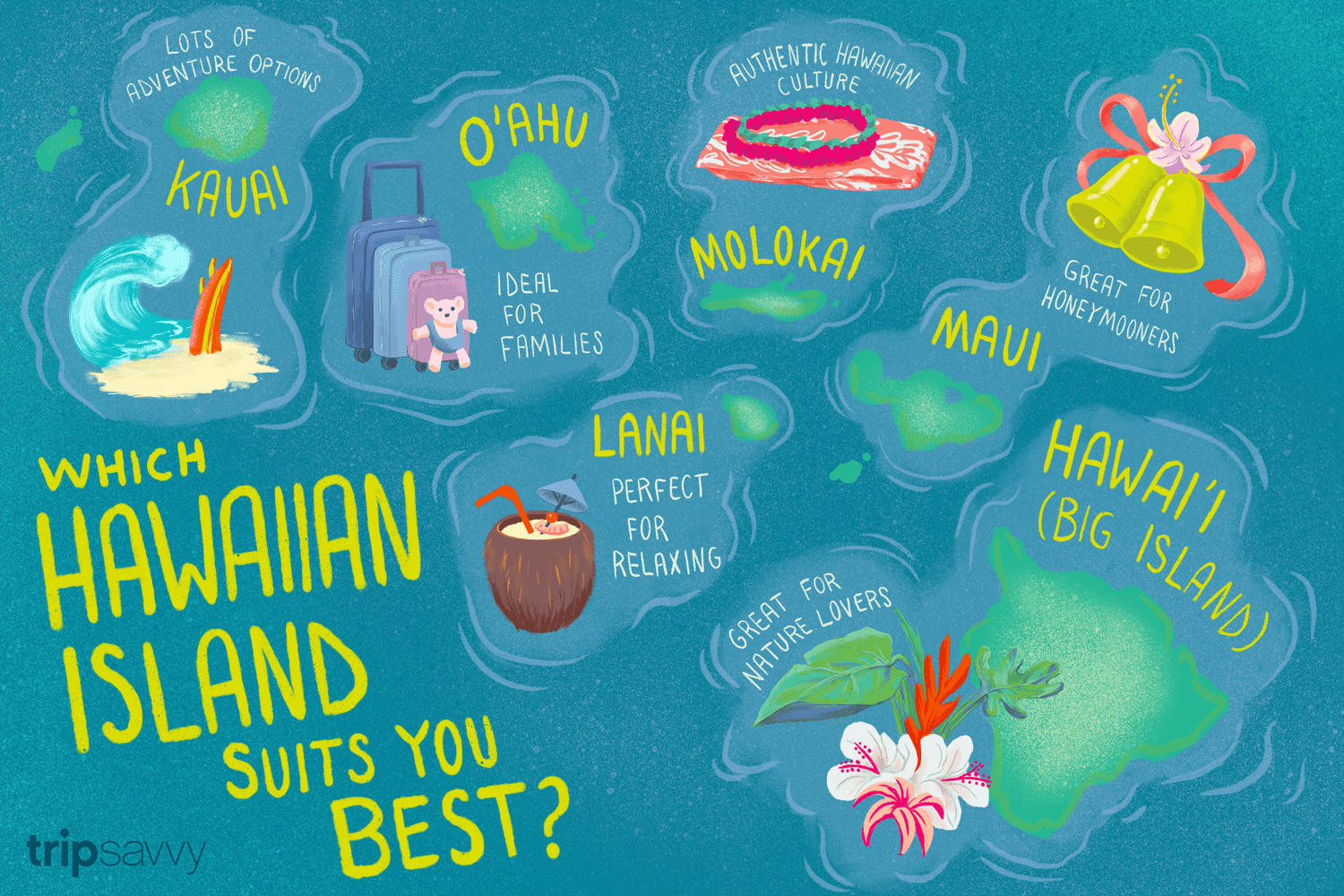
🔎 Word to define
Pau Hana: Hawaiian translation to mean “after work.”
Synonymous with happy hour, pau hana is a Hawaiian Pidgin slang for being finished with work, using the word pau, to finish, and hana, to work, in Hawaiian.
Etymology
Traditionally, pau hana happened after the plantation laborers finished work for the day and they gathered for afternoon drinks. Often, the drinks were accompanied by small appetizers known as pupus.
Example
Now that I am finished with my project with iXperience, I am excited to have pau hana to figure out what is next.
🌟 Quote to inspire
"What makes you different or weird—that’s your strength." - Meryl Streep
❓ Question to think about
How can I be more present in my life without feeling guilty of putting off planning?
📷 Photos of the Week
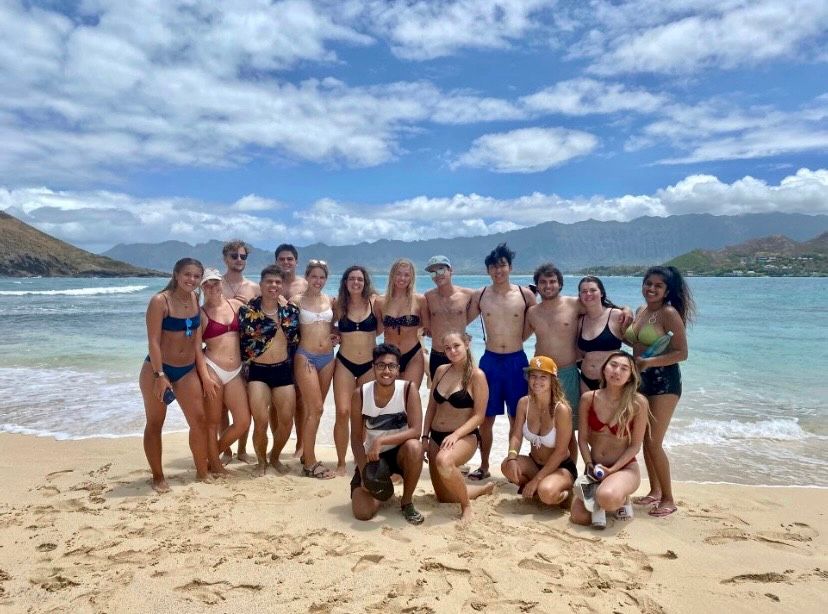
I said farewell to the 35 students for the iXperience program I was the community and operations manager for over the past six weeks.
I'm taking some time off from having no work life separation. These were the fastest weeks of my life. I don't know if it's because of being engulfed in the present, the constant phone ringing with event planning, or being in a new adventurous place like O'ahu. I've been overly stimulated in the hustling and bustling city of Waikiki in the best of ways. I'm looking forward to slowing down my pace of life.
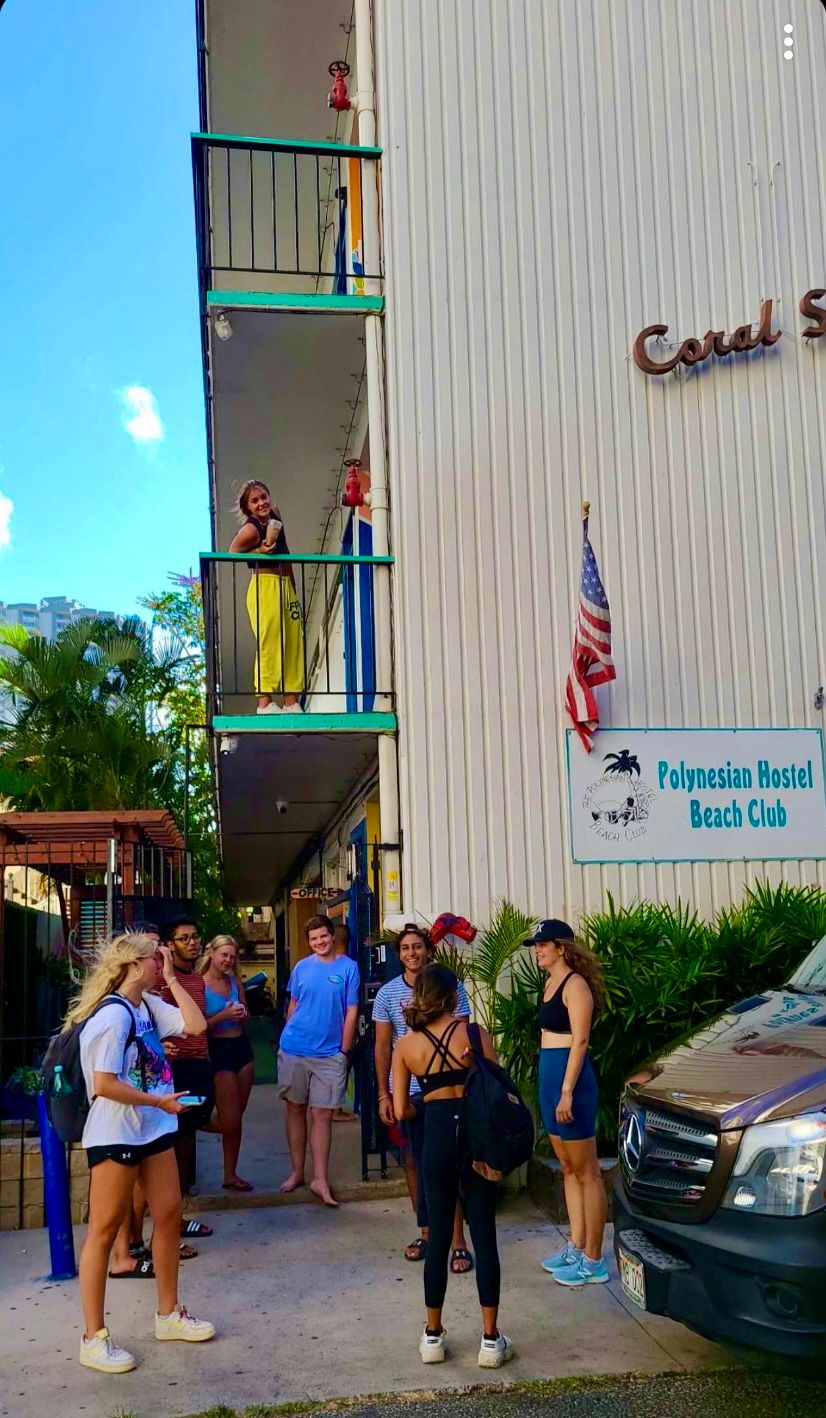
These kids made an impact on me each individually. I learned something from each of them. The power of human connection in real life cannot be understated. For that reason, I'm trying to recalibrate and figure out what is next. In the ideal world I'd love to design my life to work part-time online and part-time in real life. I love the blend of both.
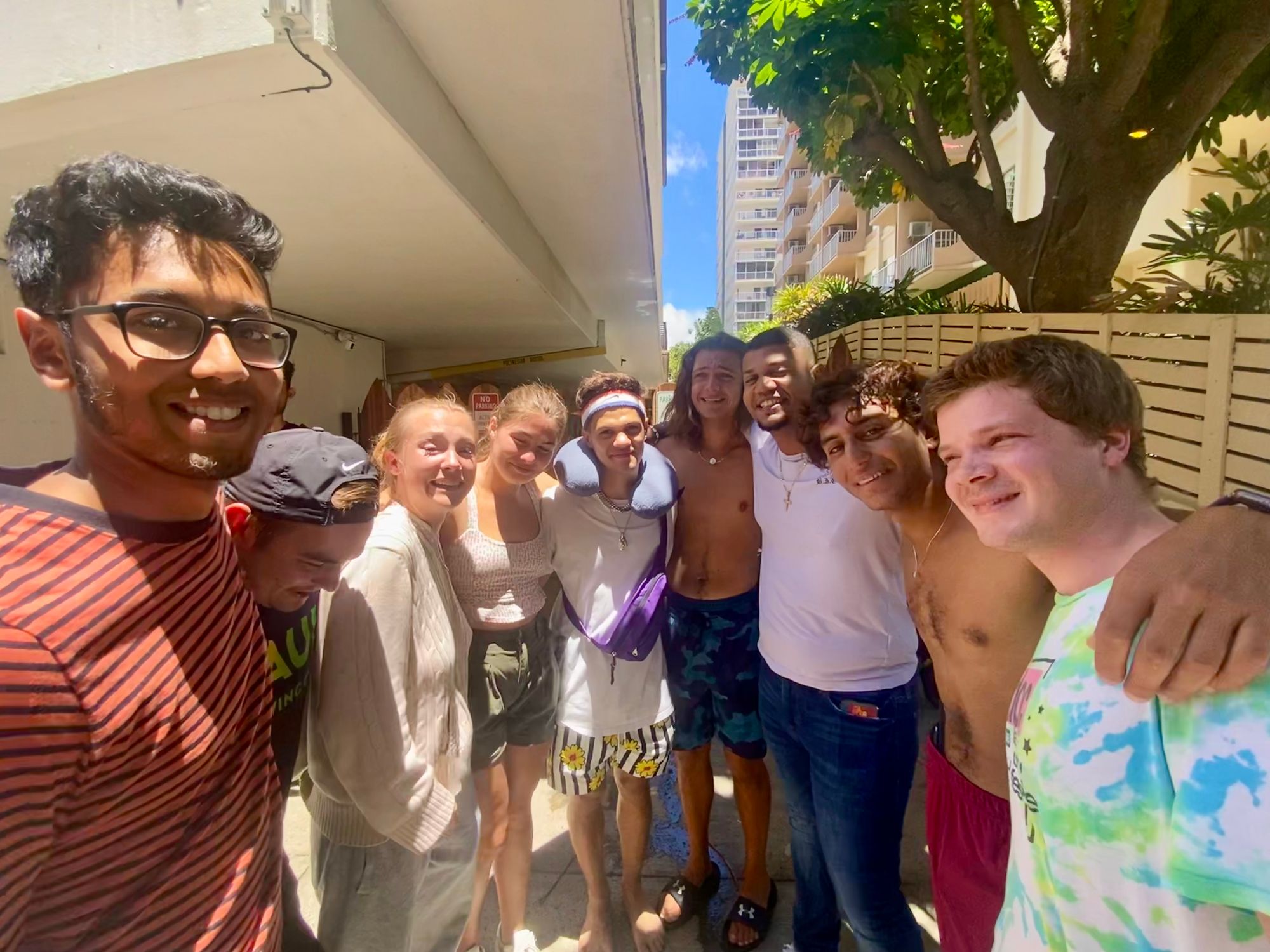
🙏 Shoutouts
- To Molly for deciding to stay at the Polynesian Hostel, selling me her surfboard and her brother for surfing five hours with me on Sunday
- To Aron Visuals for the picture of the hourglass
- To Alexandra Mahoney for the intriguing notes from this travel blog on Niihau
- To Jenna Spinelle for reaching out and interviewing me for her course on the creator economy
- To my growth-minded hostel friend, surf buddy Krysta for sharing her favorite Hawaiian word with me pau hana
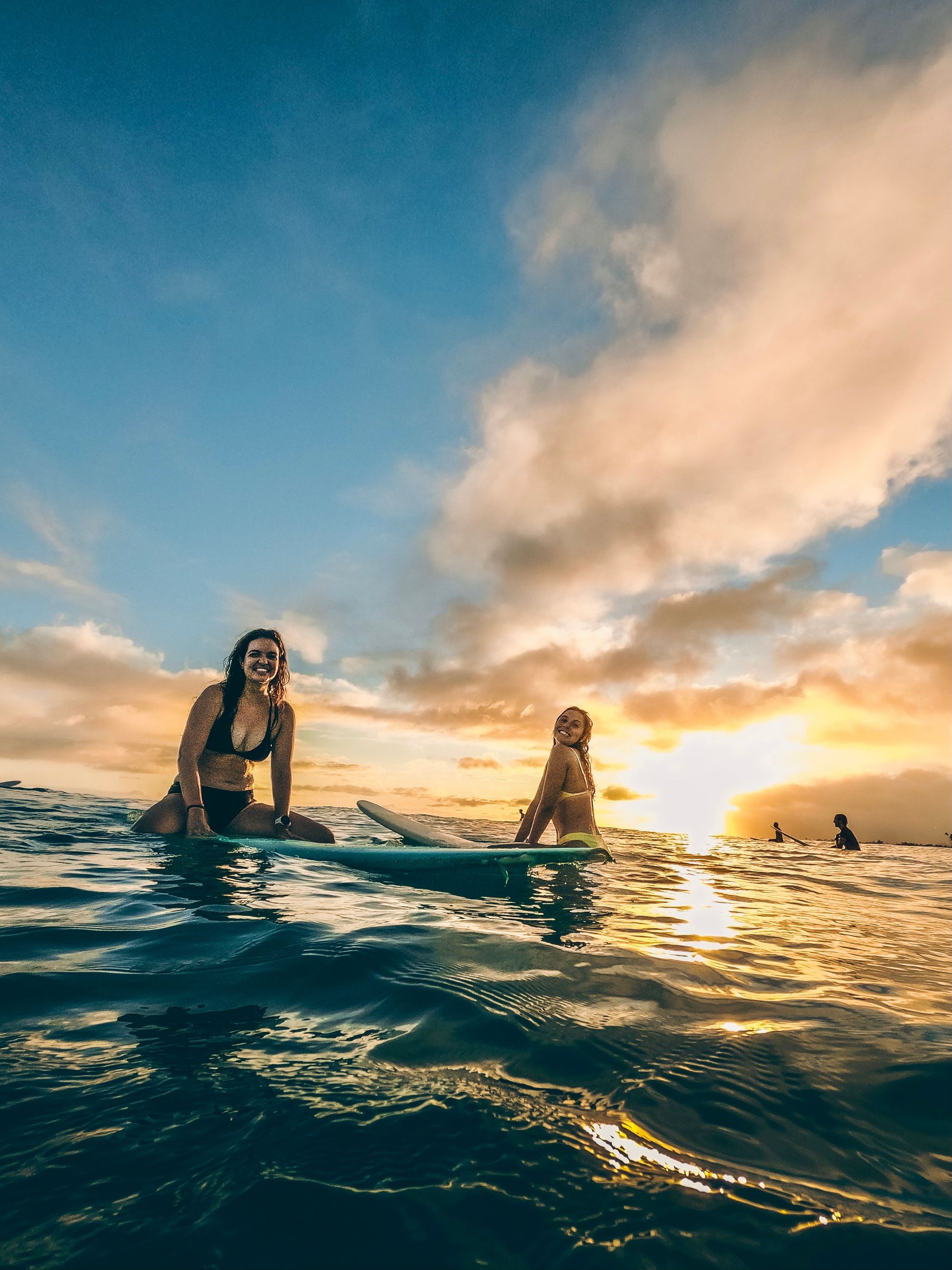
I appreciate you reading this! If certain ideas resonated or you have feedback to improve my future newsletters, I’d love you to leave a comment, reply to this email, or send me a message on Twitter @JenVermet. If you want to learn more about who I am, I welcome you to visit my online home.
Never stop learning 😁
Mahalo 🌺
Jen
👣 Footnotes
- The thought of being an islander makes me comfortable but it feels like progress. It's starting to challenge me and who I am.
- Self-paced courses are probably where the future of online education is leaning as more of the world opens up. However, my scuba course is challenging to chug along on without accountability
- I know I don’t want to live in Waikiki any longer but I don’t know exactly where else I want to live on this island. There are so many options!
- Rest, relaxation, play and breaks are important.
- How does one surf all day without dying of sunburn and dehydration?
If you’re reading this because someone shared this newsletter with you or you clicked a link somewhere, welcome! I’d love it if you subscribed below to receive future updates:
